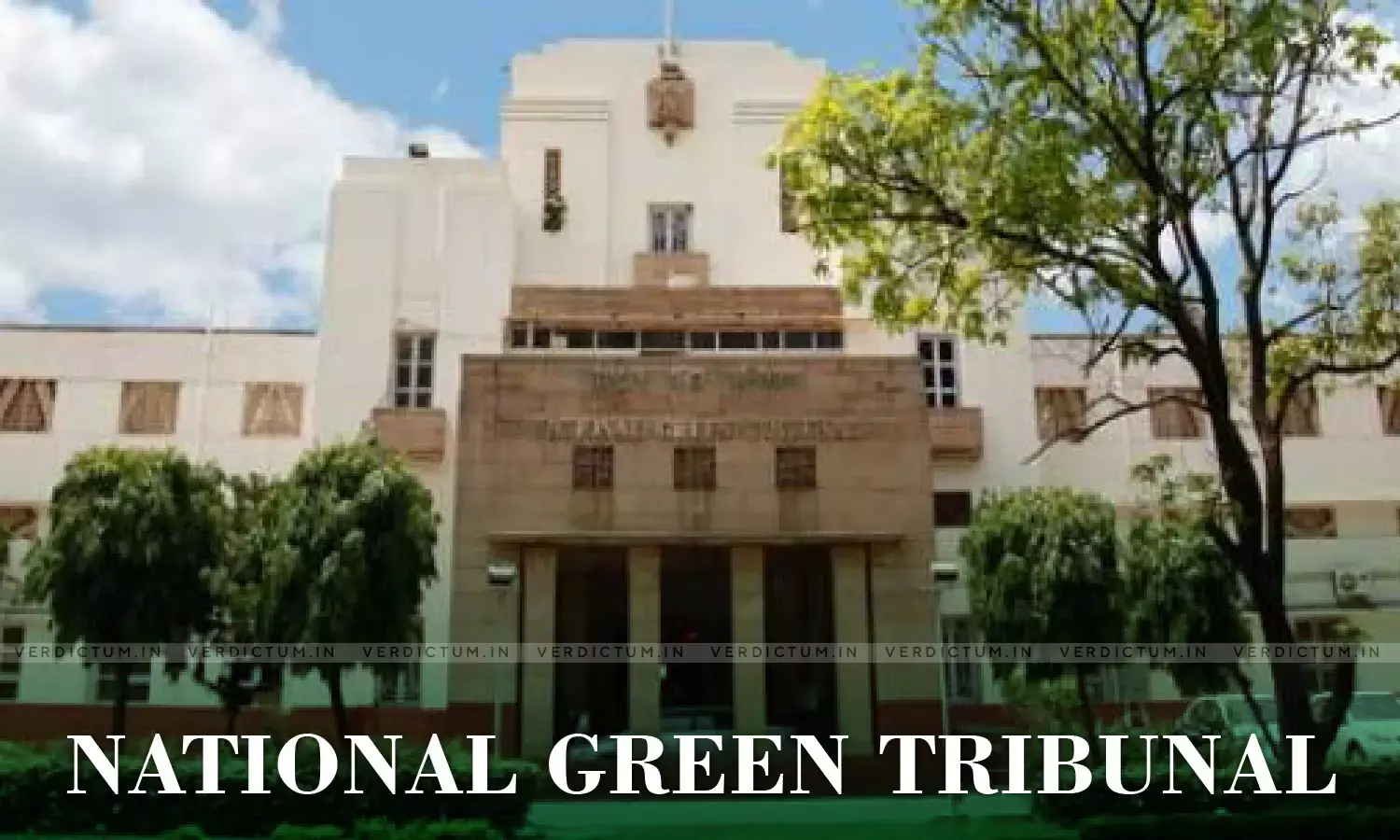Textile Printing Industries’ Pollution Case| NGT Directs Rajasthan To Pay ₹100 Crore Interim Compensation Within Two Months

The NGT (National Green Tribunal) in a matter relating to the pollution by textile printing industries has directed the State of Rajasthan to pay an interim compensation of Rs. 100 crores within a period of two months.
The Bench of Chairperson Adarsh Kumar Goel, Judicial Member Sudhir Agarwal, Expert Members Dr. A. Senthil Vel and Dr. Afroz Ahmad asserted, “… we consider it appropriate to fix interim compensation of Rs. 100 crores to be paid by the State of Rajasthan by way of deposit in a separate account, with liberty to recover the amount from the violating units and erring officers. The deposit may be made within two months. The amount may be utilised for restoration of environment in the area as per plan which may be prepared. Data of turnover of the units may be duly compiled. The units in question be put to notice of these proceedings by the State PCB for their response, if any, before this Tribunal.”
The Bench has also constituted a ten-member joint committee to plan and oversee remedial action in the interest of protection of the environment and upholding rule of law.
“The Committee may meet within two weeks and prepare an action plan in the light of above observations and such action plan be executed within shortest possible defined timeframe to prevent further degradation of environment by closing all non-compliant units and evolving mechanism for assessment and recovering compensation preferably within three months”, it directed.
Advocate Nishant Awana appeared on behalf of the Rajasthan State Pollution Control Board (RSPCB).
In this case, two pleas were filed before the NGT involving a common issue of violation of environmental norms by industries engaged in the textile printing business in Jaipur, Rajasthan, adversely affecting the water quality of Dravyavati River and the quality of vegetables and other crops grown on nearby farms.
The Tribunal in view of the facts and circumstances of the case observed, “The industrial siting has been faulty. Most of industries appear to be located in non-conforming area. It is not clear how such industries could be members of CETP without permission from concerned authority. Industrial effluents are being discharged into Dravyavati river, Chandalai and Nevta dams, forming cess pool. Industries are extracting ground water without permission of CGWA. Only 0.15 MLD of industrial effluents is pumped into CETP against designed capacity of 12.3 MLD.”
It further noted that the industrial operations have caused damage to the feeder canals, the river, and dams and that there is no information about groundwater quality and the quality of Dravyavati river.
“There is no assessment of damage to soil and agriculture. The Dravyavati river restoration project costing Rs. 1676.93 crores lacks holistic approach in absence of information about water quality and degree of treatment required by STPs/CETP. The report does not mention progress of formulation and execution of action plan for Sanganer critically polluted area”, it said.
The NGT asserted that there is no environmental rule of law in the area and the same calls for emergent action to remedy the situation and to fix accountability for such failure of the administration in collision with law vilators.
“The erring industries operating without consents or in violation of consent conditions need to be stopped and made accountable for past violations on “Polluter Pays’ principle or otherwise with reference to the expected cost of remediation and financial capacity of the units, as per law. … Needless to say that chemicals generated by dyeing, screen printing and washing units are highly toxic and carcinogenic in nature having huge potential for damage to environment and public health and contaminating sources of potable water as well as damaging soil and agriculture”, it observed.
It also said that the area is a water-stressed area where groundwater depletion and access to potable water for the common man is a serious challenge.
“… inspite of spending Rs. 159 crores by the Ministry of Textile, GoI, no improvement has taken place. Accountability for wastage of public money needs to be looked into by the concerned”, it noted.
Accordingly, the Tribunal listed the matter for further consideration on July 18, 2023.
Cause Title- Salman Qasmi v. State of Rajasthan


